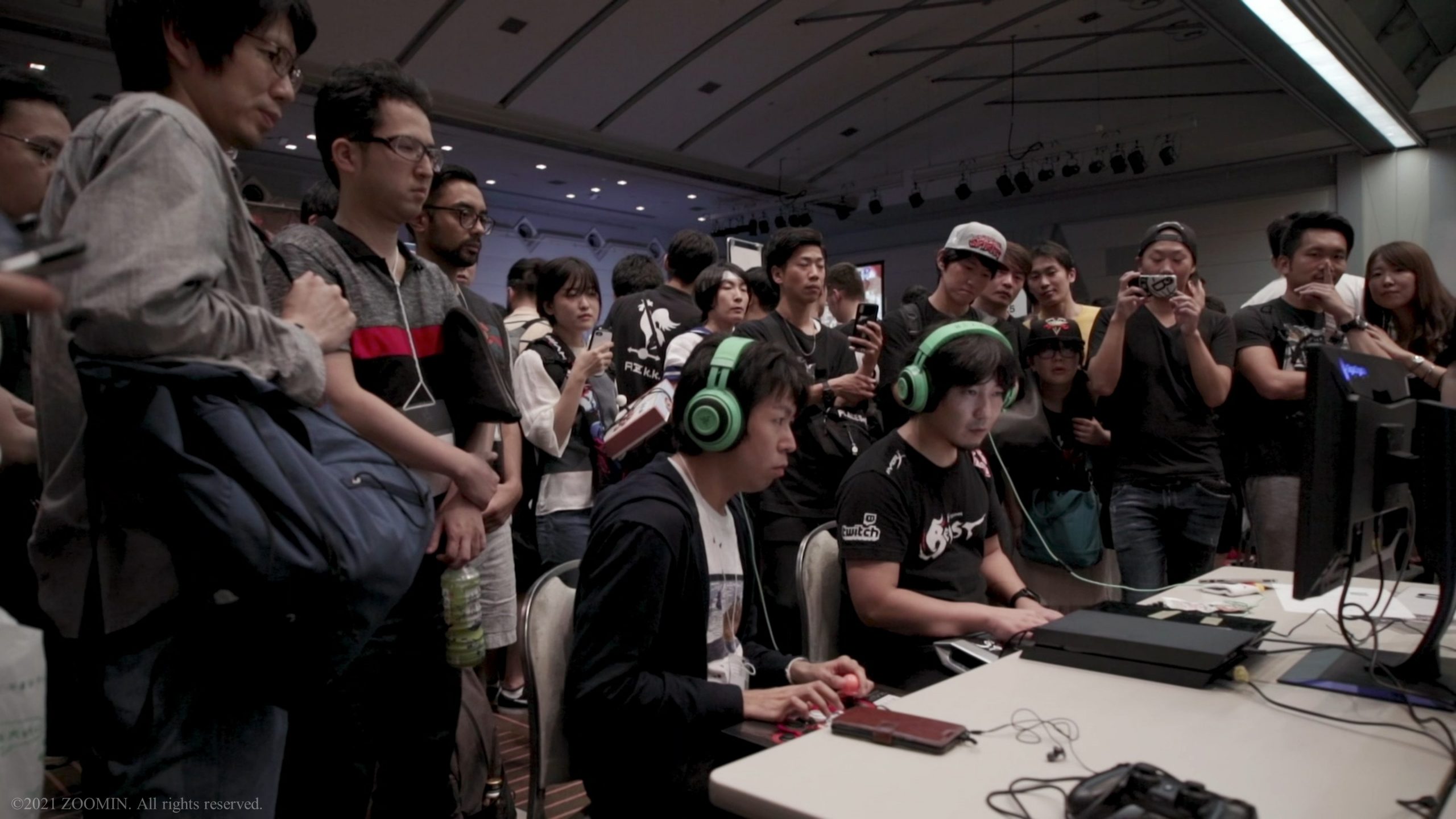
Esports Revolution features some of the most legendary esports players and streamers and reveals a world of cosplay, sold-out stadium showdowns, and a billion-dollar industry with over 380 million followers. Courtesy of TechStorm.
This story appears in the June-July 2021 issue of Television Asia Plus.
Asia’s e-sports and gaming sector has thrived amidst these challenging times brought about by the COVID-19 pandemic. With lockdowns being the new normal and more people staying at home, the sector has seen rapid growth in the past year.
According to a report from VentureBeat, game revenues for PC and mobile in Southeast Asia and Taiwan is forecast to grow to USD 8.3 billion in 2023 from USD 5 billion in 2019. The report also said that by 2023, the number of gamers is expected to expand dramatically, growing from 227 million to 290.2 million in 2023 for mobile, and 154.3 million to 186.3 million by 2023 for PC gamers.
The growth of e-sports and gaming in Southeast Asia
Debbie Lee, the founder and CEO of e-sports and tech-centric entertainment channel, TechStorm, attributed the growth of the sector to gaming having a well-developed history in Southeast Asia.
“Gaming has always held a strong foothold worldwide and in Southeast Asia where many of us grew up playing games and watching game plays,” she shared. The CEO said that they see huge popularity in game titles on mobile right through multi-player PC games like “Among Us” or Augmented Reality (AR) mobile games like “Pokemon Go.”

Debbie stressed that e-sports has a slightly different adoption and growth curve in comparison. She said, “The competitive e-sports scene and the professional and semi-professional scene has a relatively younger history compared to general gaming.”
The TechStorm CEO cited several factors that propelled e-sports in the region: Macro market drivers in two parts of the demographical shift, technological innovation, high quality of game titles, and the rise and recognition of e-sports as a legitimate competitive sport at medal games. For instance, the 2019 Southeast Asian Games in the Philippines was a game-changer in the ecosystem of e-sports, with titles such as “Arena of Valor”, “Dota 2,” “Starcraft II,” “Tekken 7,” and “Hearthstone” played at the games.

Meanwhile, Lee Choong Khay, the Head of Sports at Astro, said that the gaming audience is growing in Southeast Asia, with a low barrier of entry for mobile games, while certain multi-player titles are cross-platform, meaning they can be played both on PC and console gaming, increasing the overall gamer base.
Lee added, “Global lockdowns have also increased playtime and viewership, not just for tournaments but for live streamers and content creators as well.” He noted that between December 2019 and March 2020, all game genres that Newzoo covered exhibited growth in player share on PC, up to a 40% increase for shooting games. He said, “Given the influx of new players and viewers, many different game genres have seen growth in viewership, player share, and average play time.”
Contributions to the e-sports sector
Pay-tv channels such as TechStorm and Astro have been doing their part to contribute to the e-gaming sector’s rapid growth in the region.
TechStorm, which enjoys distribution in countries such as Thailand, Sri Lanka, Singapore, Malaysia, Indonesia, Taiwan, Cambodia, and the Philippines, champions the stories of Southeast Asia’s e-sports and gaming ecosystem, giving stakeholders a platform to tell their story and shape their own narratives.
Debbie said, “Stakeholders can work through a single access point to reach multiple countries, reaching spectators and audiences who are a mix of game aficionados and mainstream audiences who might be new to the world of e-sports and gaming.”
Among the channel’s activities include collaborating with e-sports associations, professional teams, game creators, publishers, and various communities that include young talents of game streamers and shoutcasters in tournaments.
According to TechStorm’s CEO, the platform has showcased close to 20 of the region’s most played and popular titles such as “Mobile Legends,” “Fortnite,” “Counter-Strike,” and “Dota 2.”
“We’ve showcased the International Esports Federation’s (IESF) 2020 World Championship for the “Dota 2” series and we look forward to more collaborations to bring greater diverse gameplay on our network. We believe in the motto of the ‘collective’ and ‘us.’ If all the moving parts of the entire ecosystem can come together, the industry can flourish, and we can do our part,” Debbie shared.

On the other hand, Astro’s eGG Network, which is broadcast in Malaysia, the Philippines, Indonesia, Myanmar, Australia, Brunei, and Singapore, has been hosting community tournaments such as the “Telur Mata Cup,” where Malaysian PUBG Mobile players have a chance to enter the professional scene. The event is supported by PUBG Mobile Malaysia and at stake is a prize pool of RM 30,000 (or over USD 7,000). Grand champions get automatic qualification into the Group Stage of the upcoming PUBG Mobile Malaysia National Championship 2021.
Lee said that eGG Network has also been appointed as the Creator Service Provider for Facebook Gaming where they support and grow creators and live streamers in Malaysia and the rest of Asia. Through the two-year-old partnership, eGG Network engages over 350 gaming talents and streamers in Malaysia and Asia.
Lee added, “The Gaming community has grown a lot, and we see top streamers in Malaysia reach up to 2.3 million followers. While Partner Creators can monetize their Facebook Live streams, eGG Network, as a media company, can help these talents work with brands through our influencer marketing service.”
What is Asia watching?
With Southeast Asia being a diverse market in the e-sports sector, platforms such as TechStorm and eGG Network offer a myriad of content for e-sports enthusiasts to enjoy.
TechStorm features game-based and game-themed content, such as the documentary Nintendo Quest where Jay Barlett goes on a mission to track down 678 collectibles of the original NES series. In Modern Day Gladiators, audiences can get a taste of what really goes on inside the world of professional e-sports tournaments and gives a candid view of what goes on behind the scenes.
Debbie shared that TechStorm did exceedingly well with most of its game review titles and tech-centric content. China’s artificial intelligence reality series and staples like Shark Tank were popular programmes for the channel.
Meanwhile, eGG Network reached a milestone with the “Dota 2 Kuala Lumpur Major,” a ticketed tournament held in 2018 with over 8,000 fans in attendance. According to Lee, the event was the seventh-most watched e-sports tournament globally that year, with live stream totalling 12.9 million hours.
Lee added that eGG Network co-produced Jalur 14, a five-part docuseries chronicling the rise of e-sports and the gaming industry in Malaysia. Jalur 14 recounts the tales of 14 Malaysian icons including Chai ‘Mushi’ Yee Fung, Ng ‘YamateH’ Wei Poong, and Malaysia’s first e-sports gold medalist, Dr. Yew Wen Kean, along with industry newcomers like Mohd Fariz ‘Soloz’ Zakaria, Ahmad Fuad ‘Fredo’ bin Razali, and more.
In addition, eGG Network’s E1 Championship, which launched in November 2020, is a premier simulation racing tournament that features the best drivers in Malaysia and the Asia Pacific. Having ended its first season, Lee said that Astro has plans of doing a second season soon.
With Asian broadcasters extending their full support for Southeast Asia’s vibrant e-sports scene, platforms such as TechStorm and eGG Network are doing their part to help unlock an exciting world not just for those familiar with e-sports, but for the younger generation of gamers as well.








